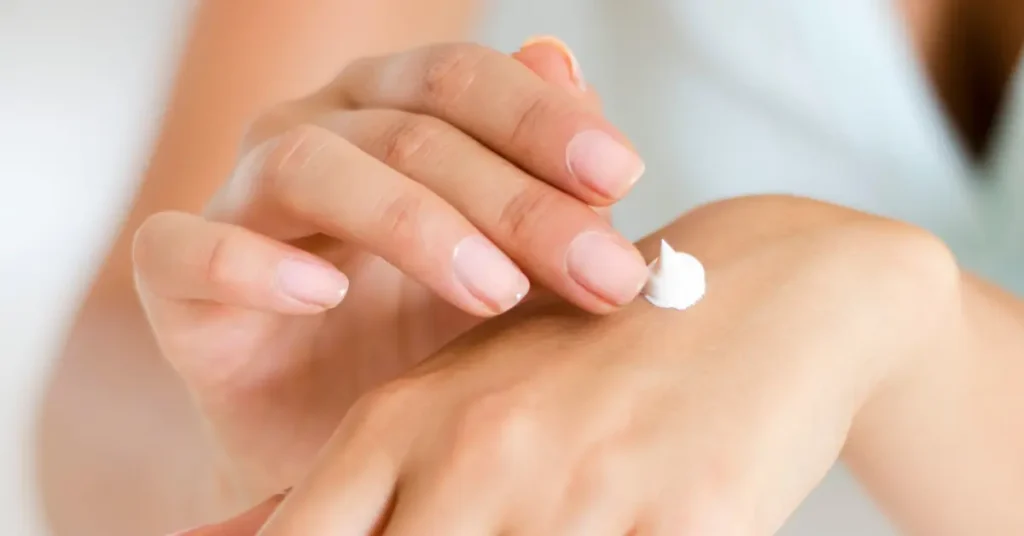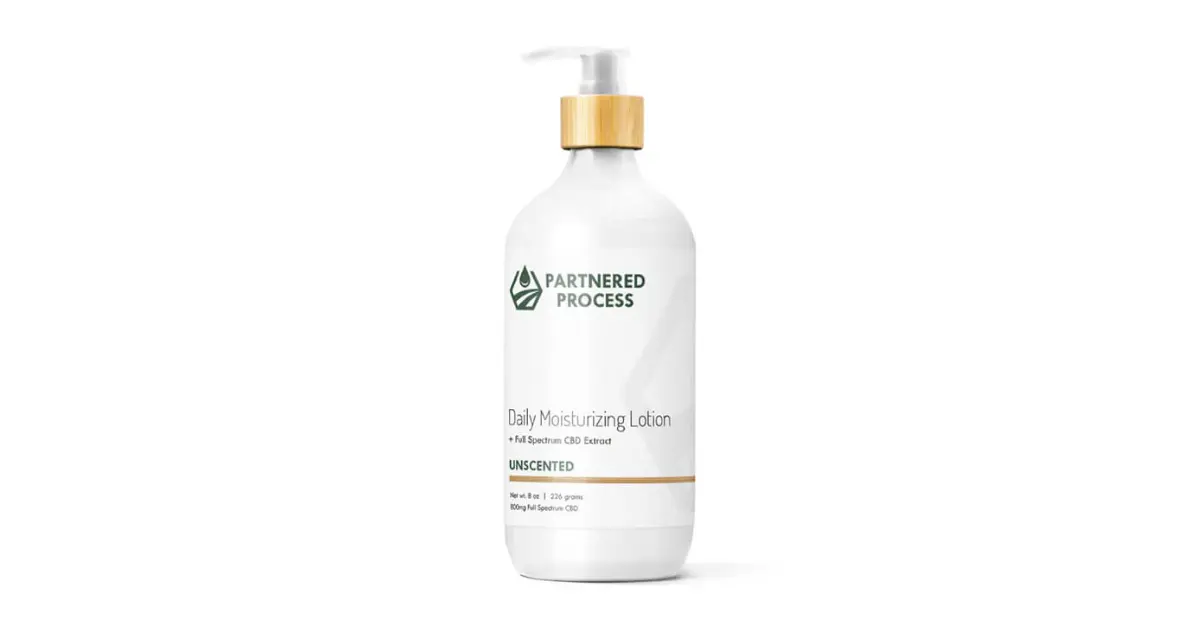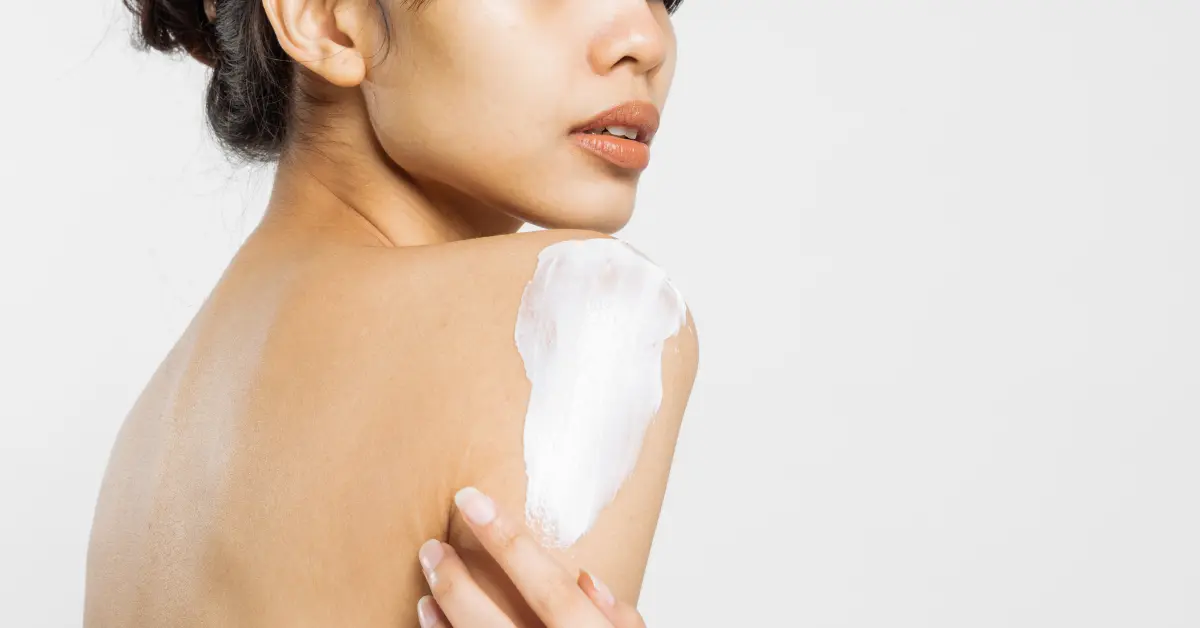Dry, flaky skin is a common issue that can leave anyone feeling uncomfortable. Many people reach for heavy creams and ointments to relieve dryness, but there’s growing interest in more natural remedies. At Partnered Process, we’ve seen a surge of questions about using CBD for dry skin as an alternative to traditional moisturizers. CBD (cannabidiol), a non-psychoactive extract of hemp, is being studied for its potential skincare benefits. CBD skin benefits are touted to include hydration and soothing inflammation, which are key factors in combating dryness. CBD may help hydrate dry skin and reduce inflammation, offering relief for persistent dryness. But how exactly does CBD work on the skin, and what makes it a promising natural moisturizer? Below, we delve into the science behind CBD and skin hydration, compare hemp-derived ingredients, and discuss how to choose the best CBD products to keep your skin soft and supple.

Understanding Dry Skin and Its Causes
Dry skin (xerosis) occurs when the skin’s outer layer lacks sufficient moisture or oil. This can occur for several reasons. Environmental factors like cold weather, low humidity, and harsh wind can strip away the skin’s natural oils. Over-cleansing with strong soaps or hot water can also damage the skin’s lipid barrier, leading to moisture loss. Aging is another contributor – as we age, our skin produces less oil and can’t retain moisture as effectively, resulting in that characteristic dryness or “crepey” texture. Health conditions such as atopic dermatitis (eczema) and psoriasis inherently involve a compromised skin barrier and chronic dryness.
Our skin remains soft due to a combination of water and oily lipids that form a protective barrier. This barrier keeps hydration in and irritants out. When it’s intact, skin feels smooth and elastic. However, when the barrier is damaged or lipid levels drop, water escapes from the skin more easily. The result is the familiar tight, rough feeling of dry skin, often accompanied by itchiness or flaking. Replenishing moisture is crucial not just for comfort but also to support the skin’s role as a protective organ. Traditional moisturizers combat dryness by utilizing three types of ingredients: humectants that draw water into the skin, emollients that fill the gaps between skin cells, and occlusives that form a seal to prevent water loss. By combining these, a typical lotion or cream can temporarily relieve dryness by restoring hydration and strengthening the skin barrier.
Many people seeking gentler solutions turn to plant-based oils and natural remedies for dry skin. Aloe vera gel, honey, and coconut oil are popular home remedies because they contain vitamins, fatty acids, and anti-inflammatory compounds that can soothe and moisturize the skin. Likewise, hemp oil for skin care has gained attention as a nourishing option. Hemp seed oil is rich in omega-3 and omega-6 fatty acids, which act as emollients, helping to seal moisture into the skin without clogging pores. Using a hemp seed oil lotion on dry patches can provide a dose of linoleic and linolenic acids, essential fats that fortify the skin’s barrier. In contrast to mineral oils or synthetic ingredients, natural oils like hemp seed, jojoba, or almond oil integrate with the skin’s own lipids. They not only moisturize but also deliver antioxidants and vitamins that support skin health. This is why natural hemp skin care products have become popular among those with sensitive or persistently dry skin: they aim to replenish the skin in a gentler, greener way.
The Skin’s Endocannabinoid System (ECS) and Moisture Balance
The human skin is an active organ with its own regulatory systems. One of these is the endocannabinoid system (ECS), a network of cell receptors and signaling molecules that are present throughout the body, including in the skin. The ECS in skin helps maintain homeostasis, meaning balance and proper function of skin cells. It plays a surprising role in processes like cell growth, immune response, and even sebum (oil) production. ECS plays a crucial role in maintaining the skin’s barrier and regulating moisture levels. Scientific studies indicate that the skin’s ECS is critical for maintaining skin homeostasis and barrier function, and disruptions in this system have been linked to various skin disorders such as atopic dermatitis (eczema), psoriasis, and other conditions involving dryness and inflammation.
This is where plant-derived cannabinoids like CBD come into play. CBD is a phytocannabinoid (a cannabinoid from plants) that can interact with the skin’s ECS. Unlike THC, it doesn’t bind strongly to CB1/CB2 receptors; instead, CBD influences the ECS more indirectly. It can increase levels of our natural endocannabinoids and modulate receptor activity. The idea is that CBD applied to the skin may help “tune” the ECS toward balance if it’s been disrupted. In the context of dryness, a balanced ECS might improve how skin regulates both inflammation and oil/moisture production. It’s a complex and still-emerging area of research, but the takeaway is that our skin has cannabinoid receptors waiting to be engaged. Applying a CBD-infused product is a way of tapping into this regulatory system, potentially nudging the skin to restore its barrier and hydration to normal levels. That’s a big reason why organic CBD skincare products are exciting to scientists and consumers alike: they offer a natural, biochemistry-based approach to skin wellness, working with the body’s own systems.
CBD’s Anti-Inflammatory Benefits for Dry Skin
One key benefit of CBD for dry or irritated skin is its well-documented anti-inflammatory effect. Chronic dryness often accompanies inflammation. Think of the redness and itch that accompany a dry eczema patch, or the irritation from cracked, dehydrated skin; these are inflammatory responses. When skin is dry or its barrier is compromised, the immune system in the skin can become activated, releasing cytokines that further damage the barrier and cause discomfort. Breaking this cycle of inflammation is crucial to allow skin to heal and retain moisture. Traditionally, steroid creams are used for inflamed skin conditions because they powerfully suppress inflammation. However, steroids can have side effects with long-term use, such as thinning of the skin. CBD offers a gentler approach: it interacts with the skin’s ECS and immune cells to reduce inflammation without the harsh side effects of steroids.

Choosing the Best CBD Moisturizer for Dry Skin
Finding the best CBD body lotion for dryness comes down to understanding both the CBD content and the overall formulation of the product. Here are some key factors and tips to ensure you get a high-quality product that delivers real results:
- CBD Potency and Type: Check how much CBD is in the product. For a body lotion intended to combat dryness, you’ll want a decent concentration of CBD. Often, products will range from 100 mg up to 500+ mg of CBD per container. A higher potency may provide more pronounced effects, especially for severe dryness or large coverage areas. Also note the type of CBD extract: Full-spectrum CBD contains additional cannabinoids and terpenes (including trace THC below 0.3%), which can have an “entourage effect” that some believe enhances effectiveness. Broad-spectrum has cannabinoids but no THC, and CBD isolate is purely CBD. Full- or broad-spectrum may be preferable for skin use because other hemp compounds (like CBG or CBC) also have skin benefits. CBG is noted for its anti-inflammatory properties, and minor cannabinoids may contribute to antioxidant activity. The best CBD lotions often use full or broad-spectrum extracts to harness multiple hemp compounds for skin health.
- Ingredients for Moisture: Examine the non-CBD ingredients, as these do the heavy lifting in pure hydration terms. Look for lotions that contain rich, natural emollients and humectants. Great examples are shea butter, cocoa butter, jojoba oil, hemp seed oil, almond oil, glycerin, and hyaluronic acid. These ingredients indicate the product is serious about moisturizing. Avoid lotions that are mostly water with a bit of CBD and not much else beneficial – a quality CBD moisturizing lotion should resemble a high-end skincare product, not just an oil with CBD thrown in. If you have extremely dry skin, a product labeled as a CBD body cream may be more effective than a lighter lotion. Creams stay on the skin longer and provide a protective layer, which is ideal for nighttime use or spot-treating stubborn dry areas, such as elbows and knees. Lighter lotions are fine for daytime and larger body application when you need something that absorbs quickly.
- Organic and Natural Formulation: Prioritize products that are labeled as organic or all-natural. Hemp cream for psoriasis is made with ingredients grown without pesticides or harsh chemicals, which is better for sensitive, dry skin. The skin can easily react to residues of pesticides or artificial fragrances, resulting in increased irritation. Check that the CBD itself comes from organically grown hemp, if possible.
- Third-Party Lab Testing: Reputable CBD skincare brands will provide a Certificate of Analysis (COA) from an independent lab. This lab report confirms the CBD content and ensures the product is free from unwanted substances like heavy metals, pesticides, or residual solvents. Since you’re applying these products to your skin, purity matters. A COA also verifies that the THC content is within legal limits (for hemp-derived products in the U.S., that is, ≤0.3% THC). Before you buy CBD lotion online, take a moment to find the product’s lab test results – trustworthy online retailers or brand websites will have these readily available. If you can’t find any, that’s a red flag regarding quality and transparency.
- Packaging and Storage: CBD and other natural oils can degrade with exposure to light and heat. The best products often come in dark or opaque containers to protect the contents. Pay attention to the expiration date as well, since natural products without strong preservatives may not last as long once opened. Once you have it, storing your CBD lotion in a cool, dark place will help maintain its potency.
- Brand Reputation and Reviews: Do a bit of research on the brand. How long have they been in the CBD industry? Do they specialize in hemp/cannabis products? A company that is known for CBD will likely have more expertise than a random skincare brand that just added one CBD lotion to its line. Read reviews from other users with dry skin. Word of mouth and community feedback are valuable, given how new some of these products are.
By considering these factors, you can zero in on a product that truly meets your needs. For example, you might conclude that the ideal product for you is a full-spectrum, high-potency CBD moisturizing cream with shea butter and hemp seed oil, from a reputable organic brand with great reviews.
Tips for Using CBD Moisturizers Effectively
Having a quality CBD lotion or cream in hand is the first step; using it correctly is the next. Here are some brief tips to get the maximum benefit from your CBD skin routine:
- Consistency is Key: Apply your hemp moisturiser regularly, not just when your skin feels dry. For preventative care, once or twice daily application keeps skin steadily moisturized and allows the CBD to interact with your skin’s ECS continuously.
- Best Time to Apply: The ideal time to apply a CBD moisturizer is right after a shower or bath, when your skin is clean and still slightly damp. Pat your skin dry, then apply the lotion. This helps to lock in the water on your skin, plus the product’s humectants will draw that moisture deeper. The CBD will also penetrate better on clean, warm skin with open pores. If you’re targeting a specific dry patch or eczema spot, consider applying a gentle warm compress to the area before applying the CBD cream to enhance absorption.
- Quantity and Technique: Don’t skimp. Use a generous dollop for each area of concern. Massage the product in thoroughly using circular motions. The massaging action not only helps the lotion absorb but also stimulates blood flow to the skin, which can aid in healing and distribution of the CBD. For very rough areas, it can help to exfoliate lightly before application so that the moisturizer doesn’t just sit on a layer of dead skin.
- Layering Products: If you have a very elaborate skincare routine, you might wonder where CBD lotion fits in. Generally, treat it like you would any moisturizer. If it’s for your face, you’d cleanse, then apply any serums, then the CBD moisturizer, and follow with sunscreen in the daytime. For the body, you typically don’t layer many products, so the hemp body cream can serve as a one-step treatment after washing.
- Be Patient and Observant: Give the product time to work. While you might feel an immediate soothing effect, the more structural changes can take days to weeks. Observe how your skin responds over a few skin cycles. If you’re using it for eczema or psoriasis, keep notes on the frequency and severity of flare-ups for comparison. If you see gradual improvement, that’s fantastic – keep it up. If not, you might need to adjust the frequency or try a different product with a higher CBD concentration or a different formula.
- Know When to Seek Professional Advice: While CBD topicals are generally very safe, if an underlying skin condition causes your dryness and it’s not improving or is worsening, consult a dermatologist. Severe eczema or psoriasis sometimes requires a multifaceted treatment plan. While CBD can be part of it, a doctor’s input ensures you’re not neglecting any important aspect of care.
It’s all about marrying the product’s benefits with good skincare practices. A high-quality CBD moisturizer used diligently and correctly can shift your skin from uncomfortably dry to comfortably nourished.
Safety and Warnings
When incorporating CBD moisturizing products into your skincare routine, it’s important to be aware of essential safety considerations and potential risks. CBD topicals are intended for external use only—avoid applying them to broken skin, open wounds, or mucous membranes, and keep them away from your eyes. If any irritation or adverse reaction develops, discontinue use immediately. Keep these products out of reach of children and pets. If you are pregnant, breastfeeding, or have a medical condition, consult your healthcare provider before using CBD skincare, as research on its safety for these groups is still limited. Responsible use and awareness of these precautions help ensure a safe and positive experience with CBD moisturizers.
Frequently Asked Questions About CBD Moisturizers
Here are answers to some of the most common questions to help you make informed decisions.
Will CBD moisturizer make me feel high?
No, CBD is non-psychoactive and will not produce a “high” or intoxicating effect when applied to the skin.
Is CBD moisturizer safe for sensitive skin?
Most CBD moisturizers are formulated for all skin types, including sensitive skin. Always check the ingredient list and do a patch test before full application.
Can I use CBD moisturizer with other skincare products?
Yes, CBD moisturizers generally fit into your routine like any other moisturizer. Apply after serums and before sunscreen for best results.
How often should I use a CBD moisturizer?
For best results, apply once or twice daily—morning and evening—just like a traditional moisturizer.
Will CBD show up on a drug test if used topically?
No, topical CBD is not absorbed into the bloodstream in significant amounts and will not cause a positive drug test.
What should I look for in a quality CBD moisturizer?
Look for third-party lab testing, organic ingredients, and a CBD concentration that matches your needs. Reviews and brand reputation are also important.
How long does it take to see results?
Some users notice softer, calmer skin within days, but significant improvements may take several weeks of consistent use.
Can CBD moisturizer help with conditions like eczema or psoriasis?
While research is ongoing, many users report relief from dryness and irritation. Consult your dermatologist for severe or persistent conditions.
Is CBD moisturizer legal?
In most places, hemp-derived CBD with less than 0.3% THC is legal. Always check your local regulations before purchasing.
Does CBD moisturizer have a scent?
Many CBD moisturizers are lightly scented or unscented, but check the label for added fragrances if you have sensitivities.

Dry skin can be stubborn, but nature offers powerful tools to address it. CBD has emerged as a promising ally in the quest for lasting hydration, working not only by adding moisture, but by engaging our skin’s own systems to combat dryness the natural way. Through its anti-inflammatory, soothing properties and its ability to help restore the skin’s barrier and water-retaining capacity, CBD bridges the gap between traditional moisturizers and advanced skincare therapy. When combined with hemp’s nutritional oils and applied consistently, CBD lotions and creams can transform the look and feel of dry skin. With the right approach, you may discover that CBD is the key to maintaining your skin’s moisture, health, and radiance all year round.
Sources:
- Cedars-Sinai – Should I Use CBD Products on My Skin?cedars-sinai.org
- Baswan et al. (2020) – Therapeutic Potential of Cannabidiol (CBD) for Skin Healthpmc.ncbi.nlm.nih.gov
- Prima (2023) – Beyond Relief: Topical CBD’s Role in Skin Repair and Rejuvenationprima.co
- Medical News Today – Hemp oil benefits for skinmedicalnewstoday.com




